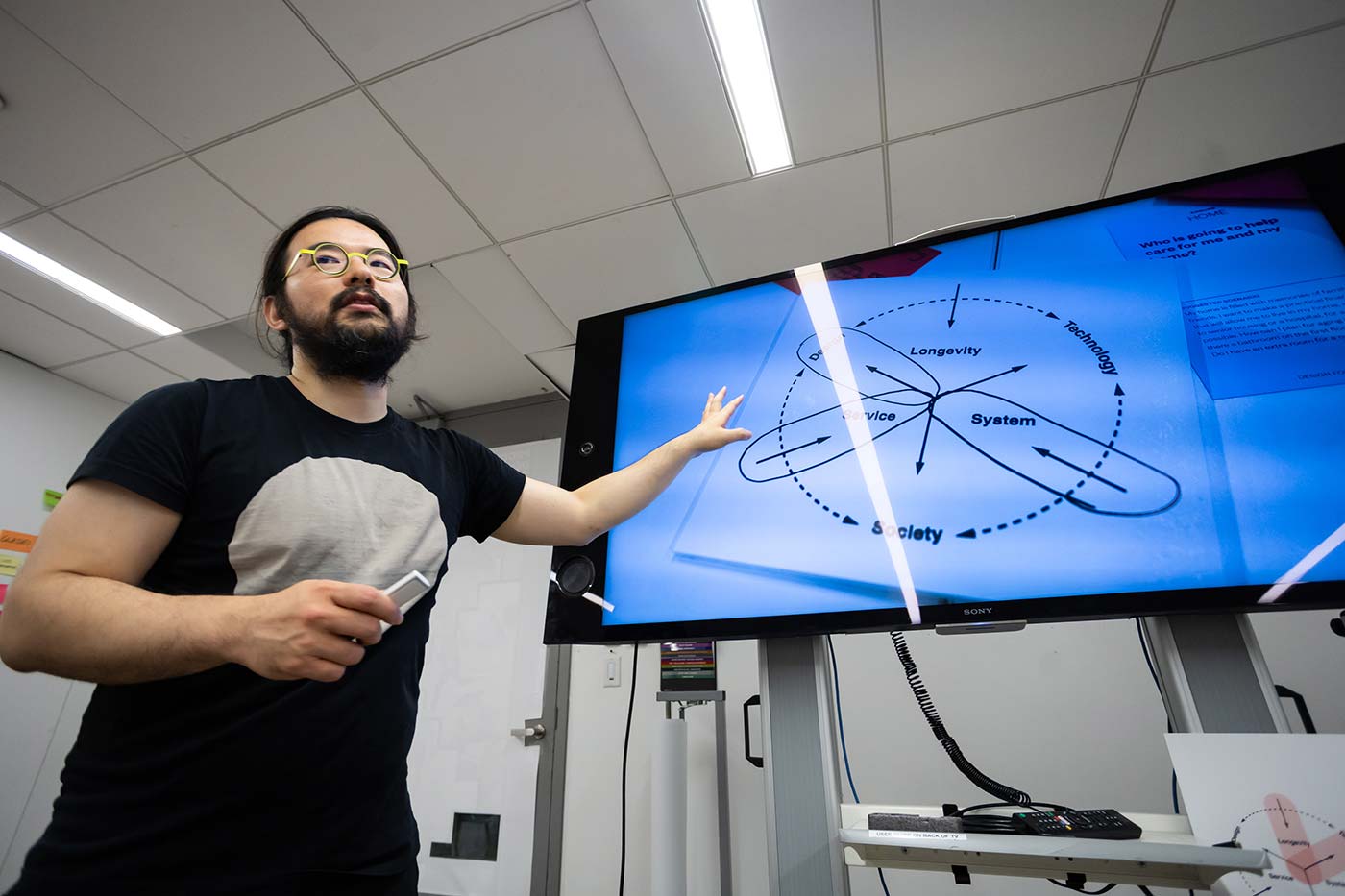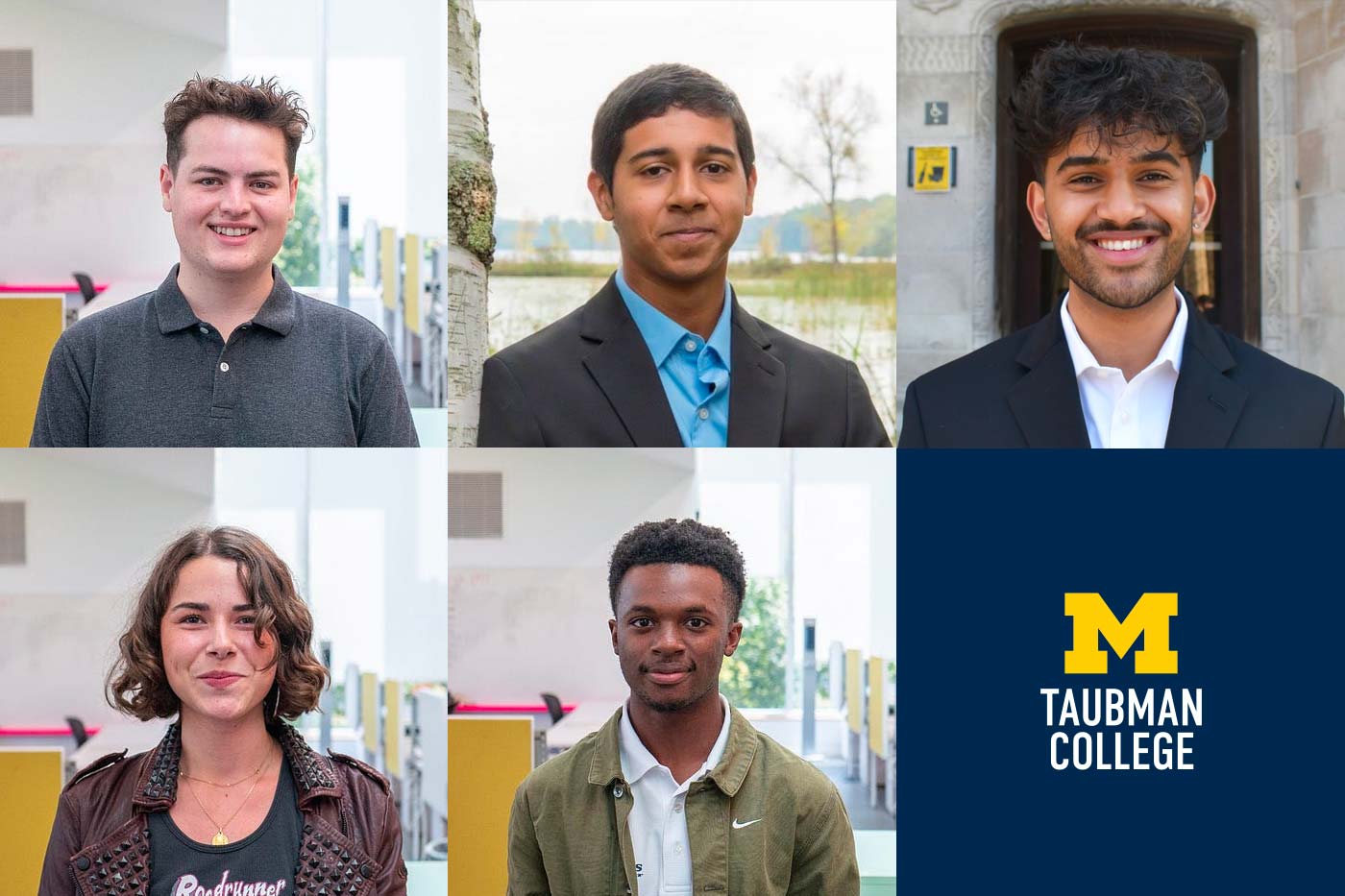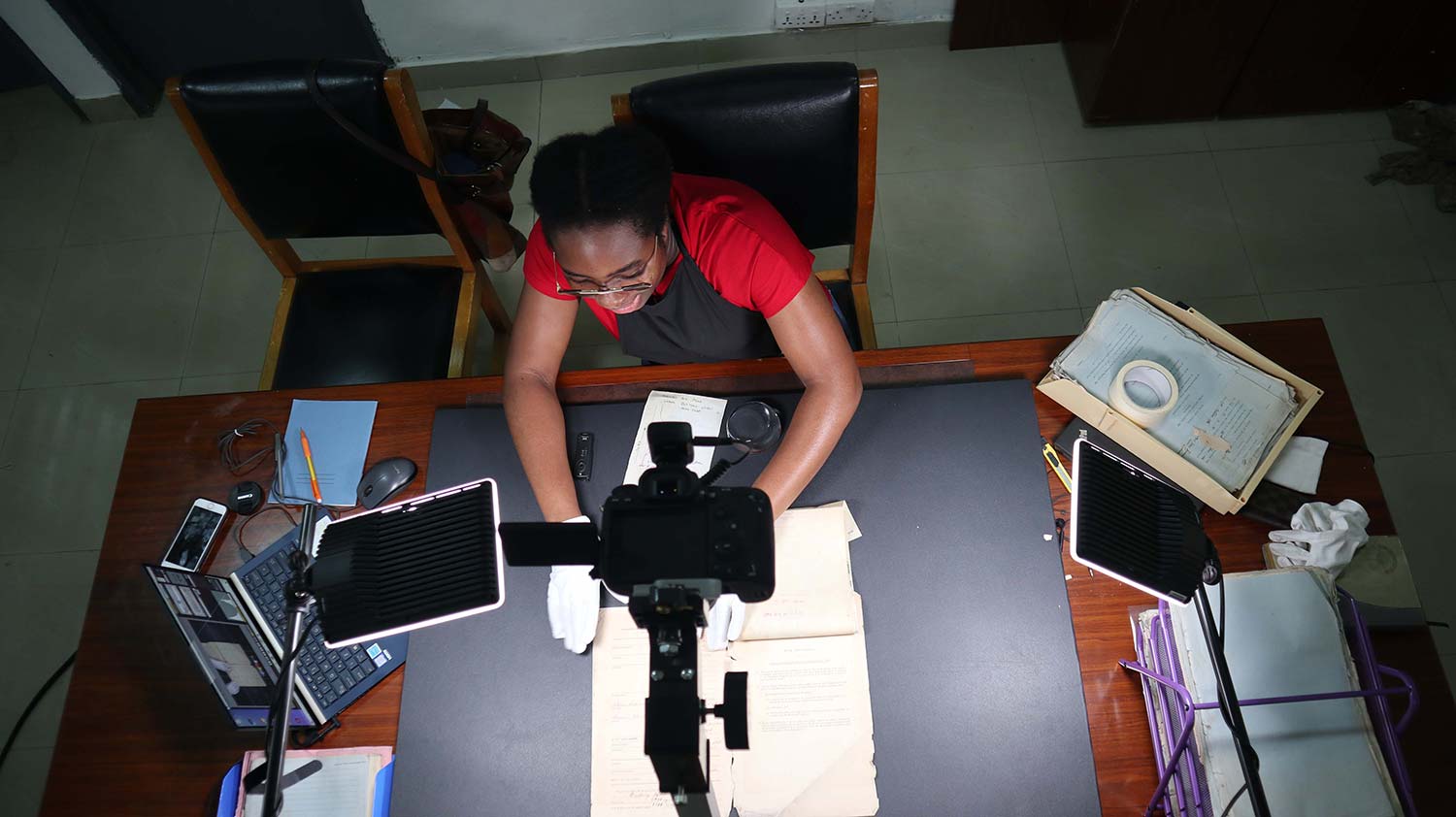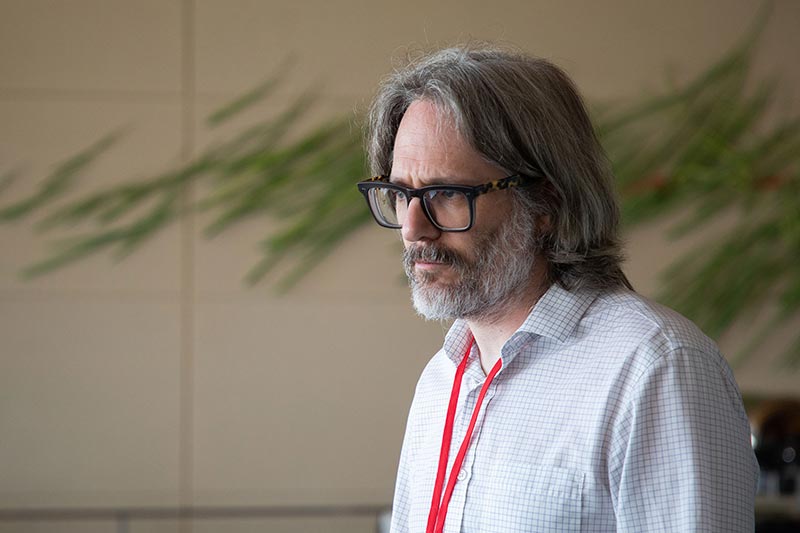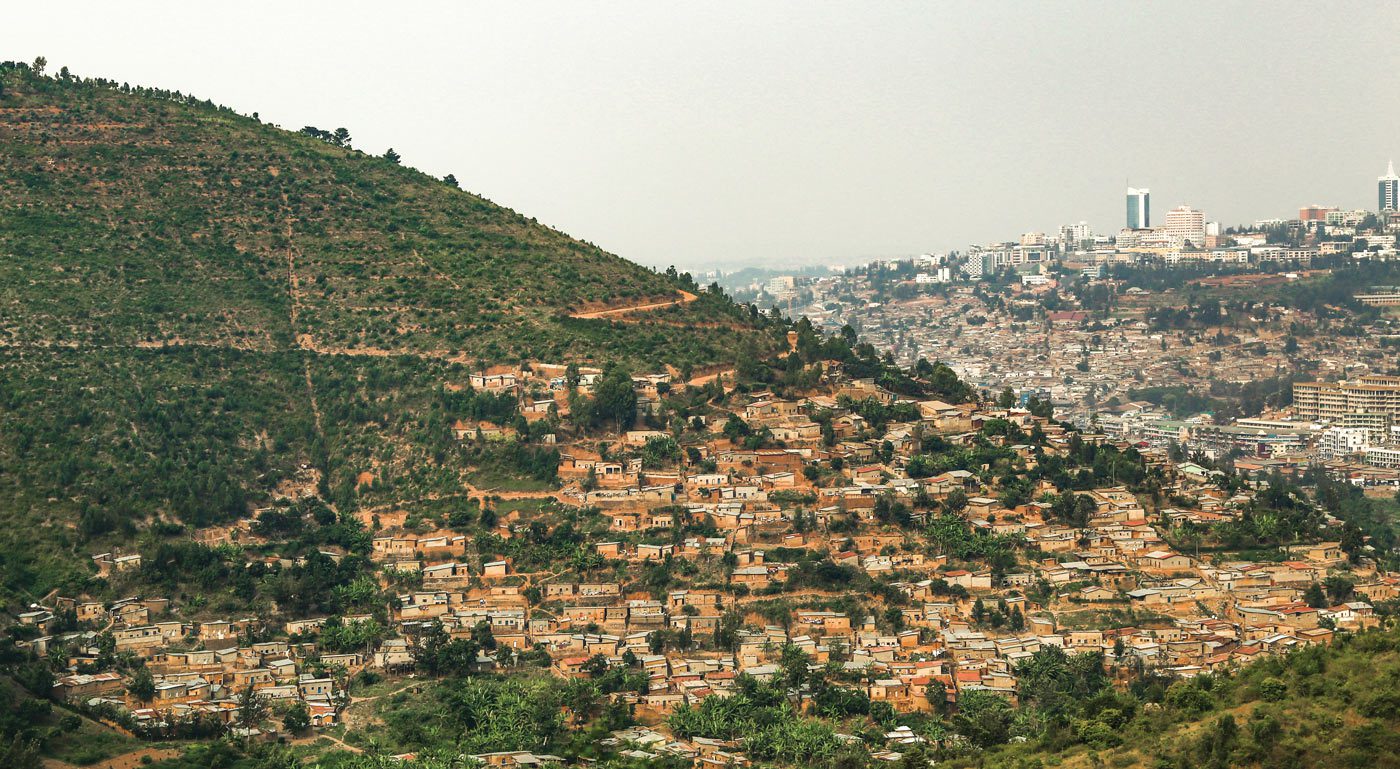
Longo International Interns Relish Transformative, Career-Affirming Summer
The inaugural Longo International Architecture Fund interns, Lucas Denit and Jamie Lee, spent three months this summer in Kigali, Rwanda, with MASS Design Group. Denit, M.Arch/M.S. ’19, worked on several projects in the competition stage and on the concept for a new project that will convert an elementary school into a coworking space for East African entrepreneurs. Lee, M.Arch ’20, spearheaded the standardization of construction administration protocols, worked on the implementation plan for the redevelopment of unplanned settlements in Kigali, and managed the market research to establish a new database of subcontractors. While their work was different, an overarching takeaway was the same: gratitude for an immersive experience in an international practice. “I feel exceptionally fortunate to have been provided this opportunity,” says Denit. Adds Lee, “I extend my sincere appreciation to everyone involved in giving me this transformative, life-changing experience.” The program is made possible in part through a generous gift to create an endowed fund at Taubman College, which has since been strengthened with a significant bequest to establish the Longo International Architecture Internship Fund.

Denit and Lee experienced Rwanda’s varied topography through excursions to the savanna in the east, rainforest in the south, volcanoes in the north, and lake country, including Lake Kivu (pictured), in the west.
“Some of my favorite moments include the places and countless adventures we had with our colleagues. There was a seductive charm and tranquility of the mountainous landscapes of Rwanda and the character of rural life,” says Lee.
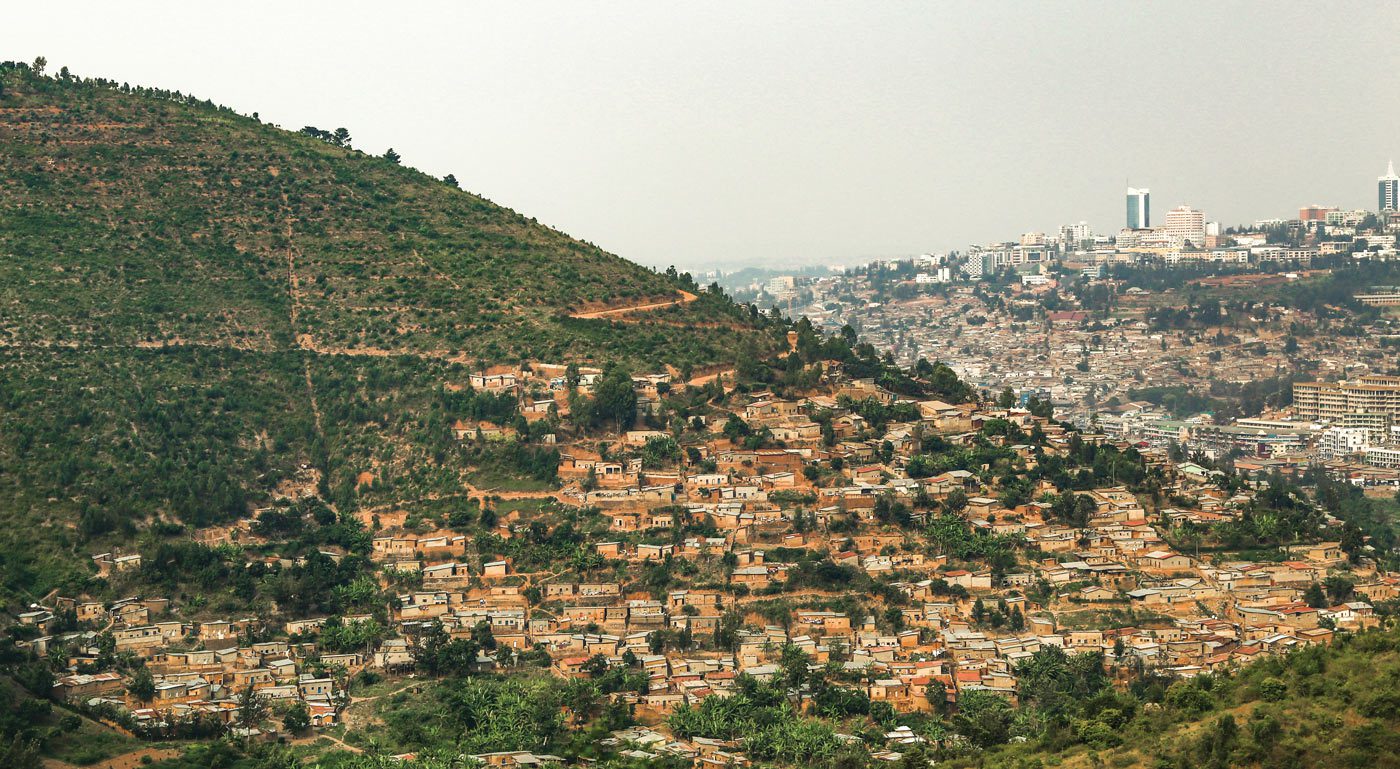
Urban sprawl in Kigali
“Growing up in the developed landscape of Singapore and working in the developing country of India illuminated the importance of quality space and equitable development for social well-being and public health. I have chosen to practice in the field of architecture and urbanism not simply because of passion, but also because of a strong belief in championing for activism, spatial justice, and sustainable development to secure a robust habitat for humanity. The global perspective and maturity that I gained in Rwanda have strengthened my belief and vision,” says Lee.
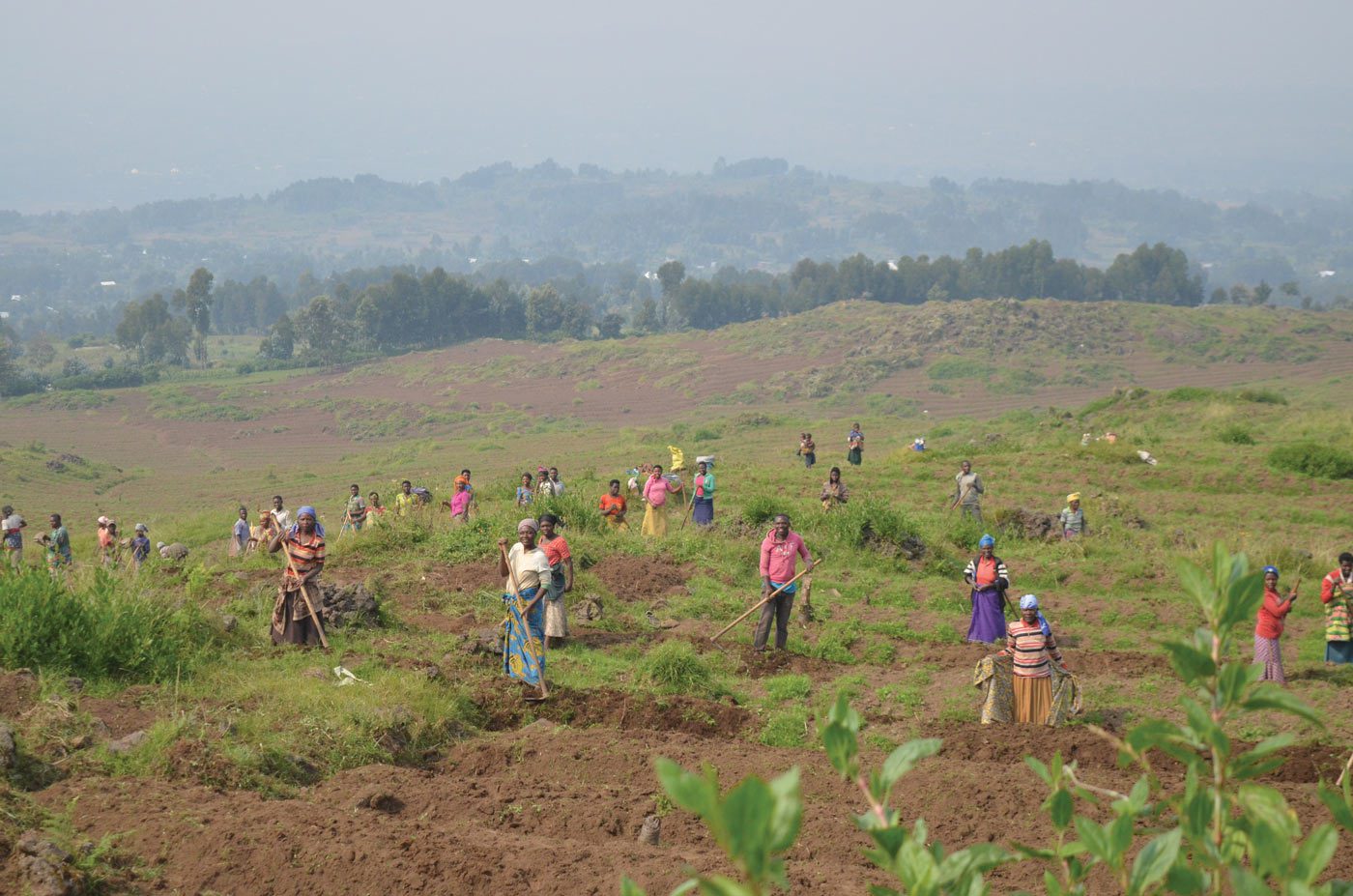
Farmers working in the fields at the base of the Gahinga volcano.
“This summer has been career-affirming. In the face of climate change, architects can be leaders in a global effort to reduce material consumption and disposal, rethink energy expenditure, and adapt construction labor to a shifting economy. Being in an office where these concerns are explicitly addressed showed me that empowered, determined individuals can effect system changes. And living in a place with fewer financial resources than the U.S. brought into clearer focus the reality of life for so many people around the world, and was instructive as to how we might shift our own culture to reduce consumption,” says Denit.
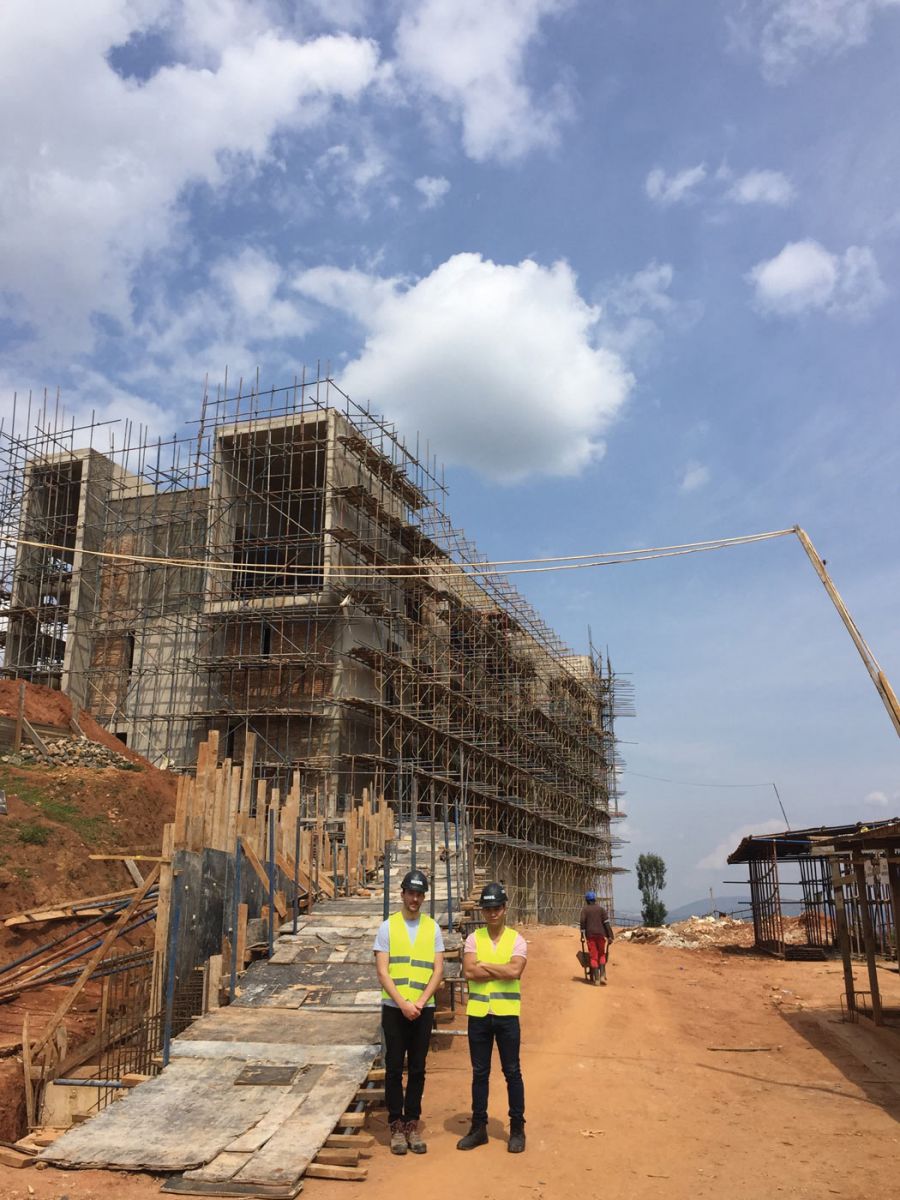
Lee and Denit traveled to finished MASS Design Group projects and active construction sites around Rwanda, including Munini District Hospital (pictured).
“Spending the summer with MASS, whose business model is so unique, clarified the importance of financial literacy and business protocol for architects. Particularly among students, we prefer to ignore the business of the discipline and focus on what first drew us to the practice. I now see that to have the level of agency we would like to have as practitioners, we need to have a firm understanding of the realities of business management,” says Denit.





